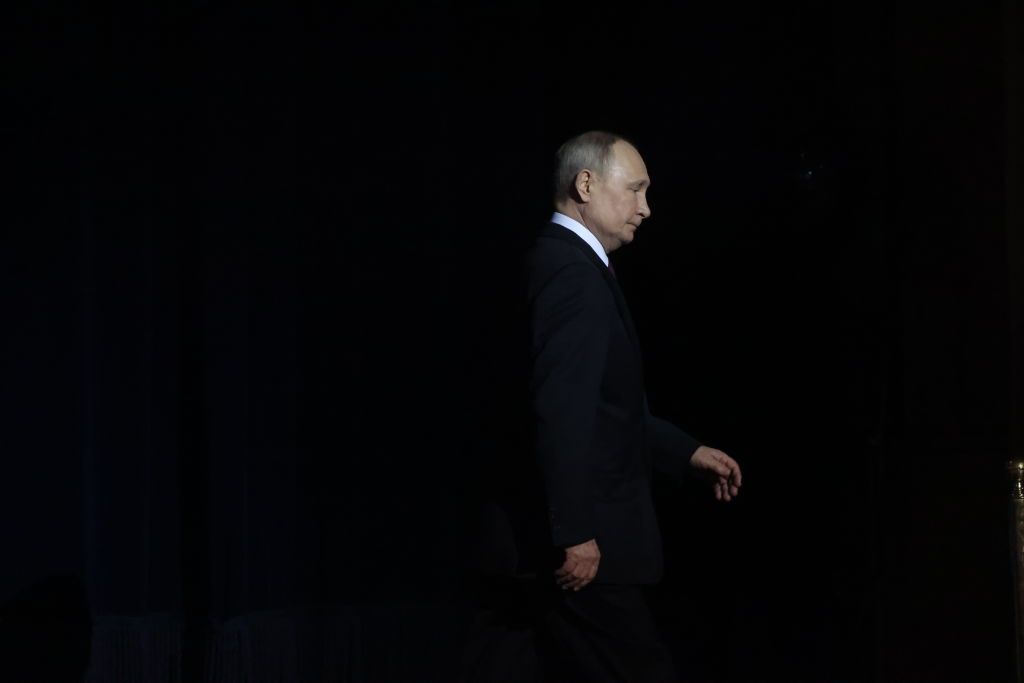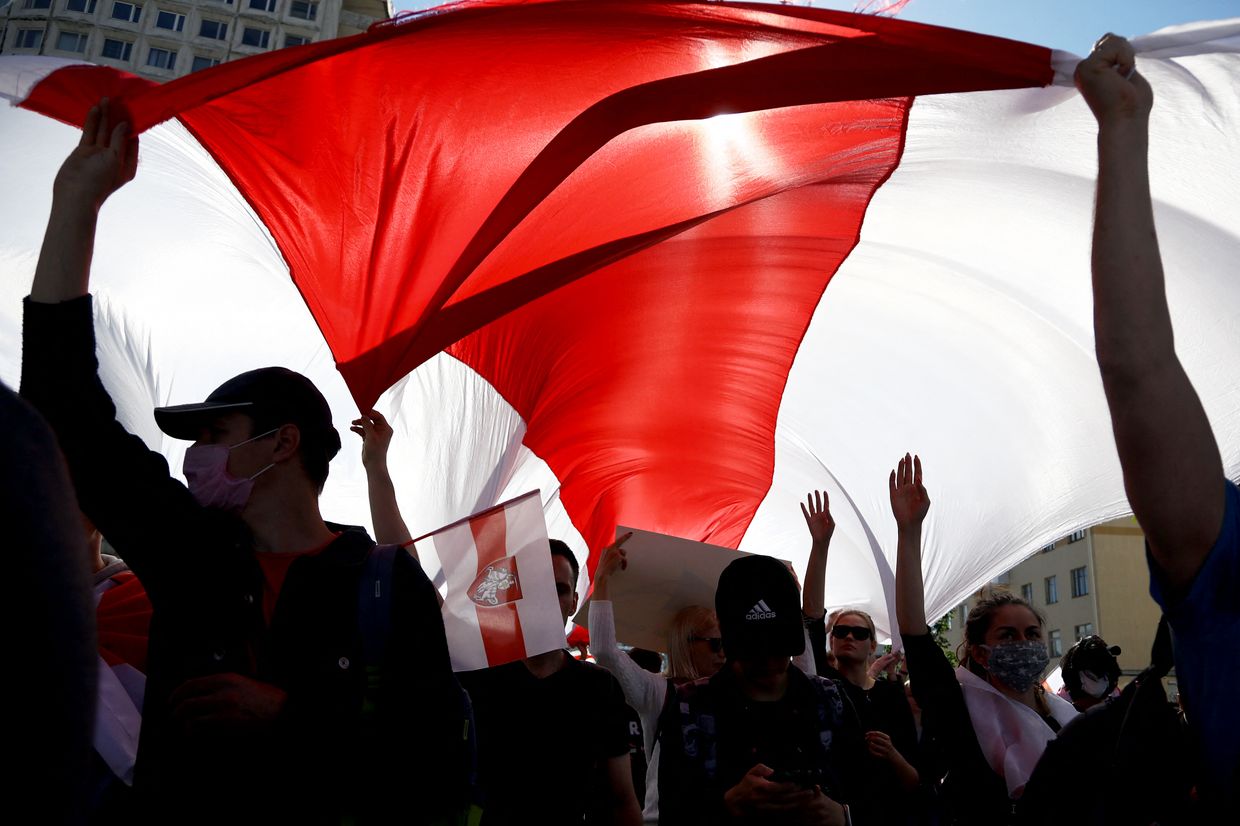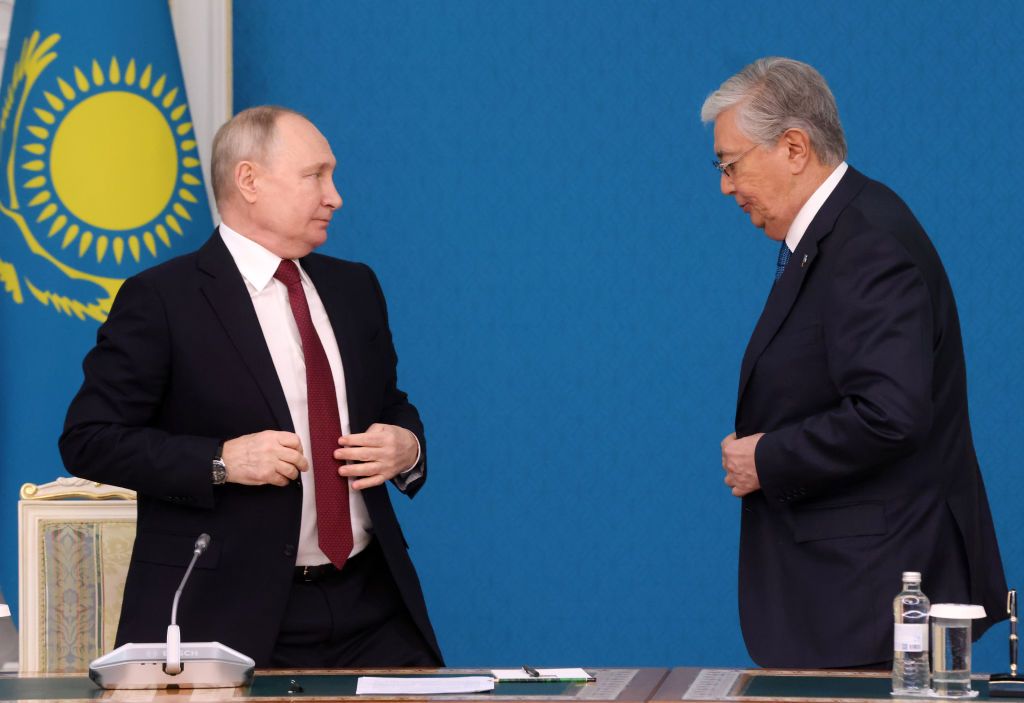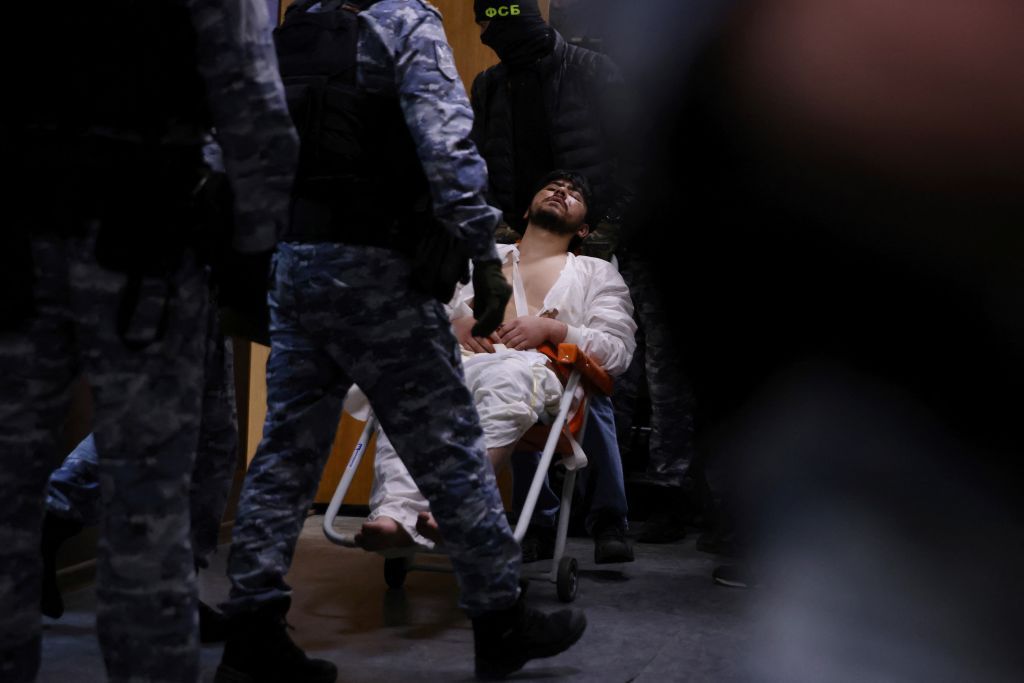Lukashenko tightens grip on power as regime prepares for new elections

Belarusian dictator Alexander Lukashenko gestures as he delivers a speech during a rally in central Minsk, on Aug. 16, 2020. The Belarusian strongman, who has ruled his country with an iron grip since 1994, faced massive protests against his rule. (Siarhei Leskiec/AFP via Getty Images)
Around a month before Russia held its presidential elections that were neither free nor fair, Belarusian dictator Alexander Lukashenko held his own election-style event.
The Central Election Commission of Belarus, controlled by the country’s dictator, claimed an unprecedented 73% turnout.
Elections in Belarus, similar to those of neighboring Russia, are little more than a formality. Opposition parties are banned, their leaders are in exile or imprisoned. The people and local authorities know the elections are sham, and democratic countries issue their regular round of condemnations.
But the sham elections served several important goals for Lukashenko, ruling the country for 30 years with an iron grip.
The staged vote was the first step in the creation of a new extra-governmental body – the All-Belarus People’s Assembly – an institution designed as a refuge for Lukashenko should he step down as the country’s president.
The February vote was also a rehearsal for the upcoming presidential elections set for 2025, in which Lukashenko announced he will once again take part.
“Elections are held in dictatorships because of the notion of legitimacy. All dictatorships mimic democracies in that they (claim to) represent the people. And Lukashenko has always presented himself as the president of the people,” RFE/RL political analyst Valer Karbalevich told the Kyiv Independent.

The vote was thus a test of the regime’s control of the outcome.
“It's an administrative test because they need to know if the system has returned to its (pre 2020) status quo,” Belarusian political analyst Artyom Shraibman told the Kyiv Independent.
With no protests, no opposition, and no belief that the elections would change anything, the examination was successfully passed by the state apparatus.
What’s it all about?
“Tell them (the exiled opposition) that I’ll run,” Lukashenko told a BelTA state news agency correspondent after casting his vote at the ballot.
In dictatorships the sole bearer of power is a person with the ultimate control over all branches of government. This person’s position can have different names, it might de jure lack official authority. It’s the unwritten rules of the game that give this person the authority.
And that is where the All-Belarus People’s Assembly comes in.
“The mass protests of 2020 pushed Lukashenko to think about his departure,” Karbalevich said. “He has repeatedly said that he won’t resign under the pressure from the streets, but that he might hold early presidential or parliamentary elections.”
The All-Belarus People’s Assembly may give Lukashenko the opportunity to step down as president but still effectively remain in control of the country. The body is not actually new – an assembly of the same name, made up of roughly 2,500-5,000 loyal Lukashenko supporters selected by state authorities, formerly convened every five years until 2015 – every electoral cycle – to demonstrate "popular approval" of Lukashenko’s policies.
Lukashenko held a contested referendum on Feb. 27, 2022, to revive the assembly and add it into the Constitution as an organ that does not fit into any branch of power, but claims supremacy over all of them.
Under the Constitution, the assembly's now 1,200 members are to convene at least once a year, while its 15-member Presidium is to operate all year round.
A system similar to that of the Soviet Union’s Supreme Council (Supreme Soviet).
The assembly will also have new powers: it has the right to consider the legitimacy of elections and impeach the president, initiate changes to the Constitution, and enact a state of emergency or martial law.
Upon nomination from the president, it appoints judges of the Supreme and Constitutional Courts, as well as Central Election Commission members, and can approve the deployment of Belarusian troops to foreign territories.
The current and former presidents of Belarus are reserved seats in the assembly, and the rest of the members are selected from the legislative and executive branches of power, the judiciary, local councils, and “civil society” – government-approved non-profits and professional unions.
All of the above have been loyal to Lukashenko, the country’s first and only president.
Karbalevich suggests that after Lukashenko managed to restore his grip on the country and played his role of supporting Russia’s full-scale invasion of Ukraine, the issue of his departure from power became less urgent.
Keeping Lukashenko in power in Belarus became a key indicator of stability for Putin.

“It turned out that Belarus is Vladimir Putin's only ally, and it’s important for Putin to keep this ally,” Karbalevich told the Kyiv Independent. “Lukashenko is the best guarantor (that Belarus remains a Russian ally).”
The experts agree that the likeliest scenario is that Lukashenko will take both spots: heading the All-Belarusian People’s Assembly and then claiming the presidency for a seventh consecutive time in 2025.
And for as long as Lukashenko remains president, the assembly will simply remain part of the dictator's “decor,” experts say.
“All state institutions in Belarus – the parliament, the Constitutional Court, the Supreme Council, the local councils, and the government – are idle,” Karbalevich said.
“The only acting institution is Lukashenko. As long as he’s in power, the emergence of another (institution), like the assembly, won’t affect anything.”
Lukashenko picks the candidates for all significant positions, and with authority over the government, he can remove members of the assembly if he wishes. If push came to shove, Lukashenko’s law enforcers could even forcefully disrupt assembly meetings, as they did when parliament went on strike in 1995.
“The only intrigue or anything of interest in this spring political campaign in Belarus is to see who Lukashenko will take with him to the (assembly) Presidium to create a collective guarantor of the continuity of his rule,” Shraibman said.
Experts also doubt the assembly would be capable of governing in the unlikely scenario of Lukashenko's resignation, as the full body meets only once a year. And as it creates a center of power alternative to the presidential administration, the entire scheme may prove unworkable.
“There are no examples of dual (centers of) power working effectively in the long run,” Shraibman said.
He pointed to the example of Kazakhstan, where long-time President Nursultan Nazarbayev stepped down as president in 2019, but tried to retain control by heading the country’s Security Council – only to be pushed out of that powerful role by the new president, Kassym-Jomart Tokayev, in 2022.
What’s next for Belarus?
Nevertheless, elections to the new structure in the Belarusian state are slated for April 1 to April 10, and the first meeting of the new assembly is set to take place no later than April 24.
If the status quo in the region persists, analysts say, the 2025 presidential elections will be rigged to land Lukashenko a seventh term in office, and there will be no mass disturbances as seen after the 2020 vote.
Hundreds of thousands have been forced to flee the country, while another around 1,400 people are considered to be political prisoners of the regime, according to the Viasna human rights group.
Meanwhile, human rights activists report no decline in the scale of repression in Belarus, even though the system seemingly passed its election stress test in February, and the potential for new protests are at an all time low.

The 2025 presidential election will also pose an existential question for Belarusian opposition in exile, led by Sviatlana Tsikhanouskaya, who claimed to have beaten Lukashenko in 2020 and assumed the role of the leader of the country’s democratic opposition in exile.
But there is practically no prospect of Tsikhanouskaya, or any legitimate opposition politician, being on the ballot in 2025.
When asked about the opposition’s 2025 strategy, Tsikhanouskaya’s advisor Franak Viachorka simply claimed that elections in Belarus ended in 2020, and until free and fair elections are held in the country, Tsikhanouskaya will remain the legitimately chosen Belarusian president-elect.
The strategy for the opposition can only be “communicative,” Shraibman said.

“I don't think there is a winning strategy for the exiled opposition, the success of which we can measure against the election results. It’s more of a crisis management matter… (to see) if they can get through the campaign with minimal losses.”
The Lukashenko regime has ruled out participation of the exiled democratic forces, and the country’s constitution stipulates that potential candidates have to reside in Belarus for at least 20 years and have no foreign citizenships.
Moreover, any “daredevil” domestic opposition candidate inside the country who risks challenging Lukashenko cannot afford to be affiliated with the exiled democratic forces, who have been declared terrorists and extremists in Belarus.
Unless there is a dramatic turn of events in the region, Lukashenko’s rule – hitting the 30-year-mark in July – looks indefinite.















